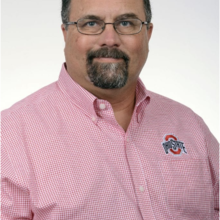IAWC M11 Wellness Counseling: Introduction to CAM
Explore Complementary and Alternative Medicine (CAM) for holistic wellness. Understand its principles, practices, and how to implement them in counseling.
Course Overview
Handout M11 CAM Introduction
IAWC M11 Cam Introduction Video
Required Reading
Required CAM Article
Required CAM Chart (Descriptions)
References CAM
M11 Intro to CAM Quiz
08 M11 Module Evaluation

Recorded Program
Introductory
View the entire recording.
Complete the post-test with a passing grade of at least 80%
Complete the course evaluation

Ohio CSWMFT Approval
This training is approved for counselor, social work, and marriage and family therapy continuing education. In addition, it is approved by the Ohio Chemical Dependency Board for chemical dependency continuing education. Check CE Broker for detailed breakdown of CE types (provider number 50-24074).
AWSB Approval
NA- This course is not eligible for credit through the ASWB.
NBCC Approval
Mindfully has been approved by NBCC as an Approved Continuing Education Provider, ACEP No. 7322. Programs that do not qualify for NBCC credit are clearly identified. Mindfully is solely responsible for all aspects of the programs.
Individuals with comments/questions/concerns can contact Mindfully Academy via the information provided below:
513-939-0300
Charles Potter (Program Coordinator) [email protected]
APA Dictionary of Psychology (2018). Complementary and alternative medicine (CAM).
Barnett, J. E., & Shale, A. J. (2013). Alternative techniques. Monitor on Psychology, 44(4).
Davis, P., & Nguyen, T. (2021). Aromatherapy and its psychological effects. Complementary Health Journal, 22(3), 112-130.
Elkins, G., Roberts, L., & Stork, S. (2019). Complementary and alternative therapies. In B. A. Moore & W. E. Penk (Eds.), Treating PTSD in military personnel: A clinical handbook (2nd ed., pp. 214–233). The Guilford Press.
Garcia, L., & Thompson, M. (2022). Mindfulness meditation as a complementary therapy for anxiety disorders. Journal of Holistic Health, 18(4), 210-225.
Harrison, B., & Lopez, J. (2020). Reiki therapy: A systematic review of its effectiveness. Holistic Medicine Journal, 27(2), 89-105.
Lee, C., & Kim, H. (2023). The role of chiropractic care in musculoskeletal disorders. International Journal of CAM Research, 31(1), 55-70.
Martinez, A., & Wilson, D. (2024). Dietary supplements in complementary medicine: Benefits and risks. Nutrition & CAM Studies, 35(1), 45-60.
Smith, J., & Brown, K. (2021). The efficacy of acupuncture in chronic pain management. Journal of Integrative Medicine, 29(3), 145-160.
Williams, R., & Patel, S. (2020). Herbal medicine and its role in modern healthcare. Alternative Medicine Review, 25(2), 78-95.